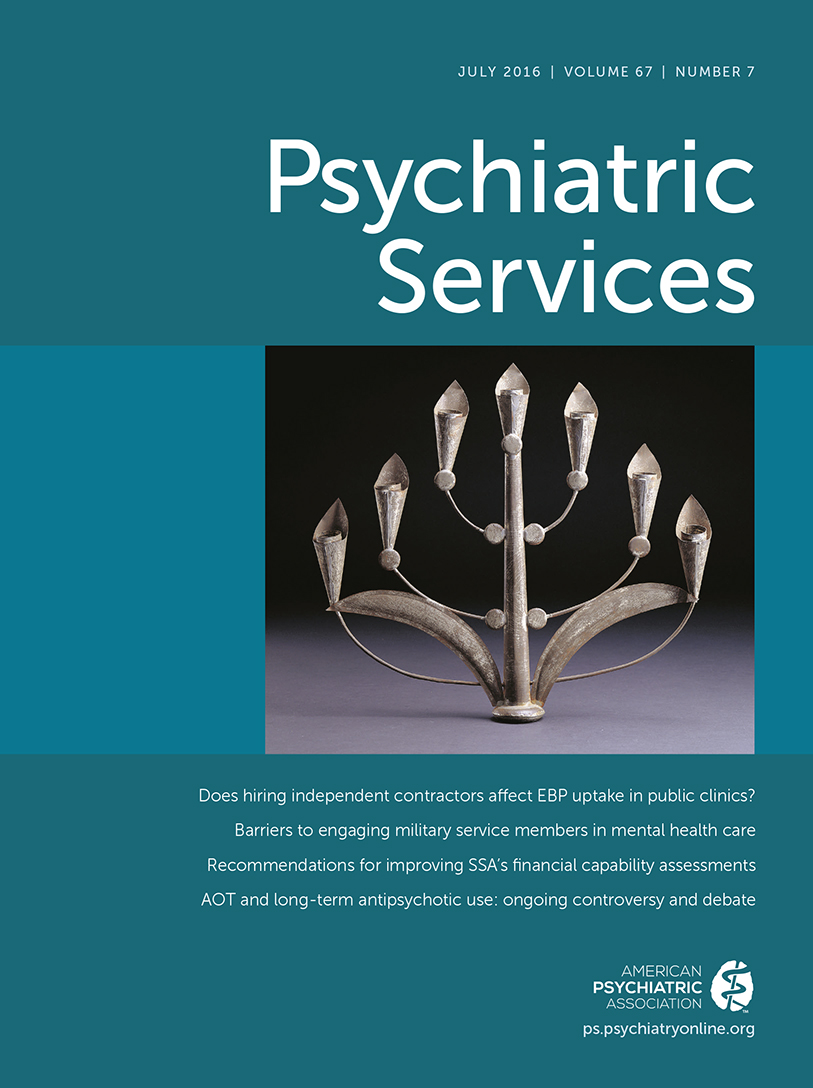Receipt of Depression Treatment From General Medical Providers and Specialty Mental Health Providers
Abstract
Objective:
This study compared sociodemographic characteristics and health conditions of adults with a major depressive episode who received treatment from general medical providers or specialty mental health providers.
Methods:
The sample included 17,700 respondents ages 18–64 from the 2008–2012 National Survey on Drug Use and Health who met the DSM-IV criteria for a major depressive episode in the past 12 months and of whom 8,900 (61.5%) received treatment for depression.
Results:
Approximately 21% of adults with a major depressive episode received depression care from general providers only, 19% from specialists only, and 19% from both. Compared with adults receiving care from general providers only, adults who received care from both types of provider were younger, had higher education, were more likely to have suicidal ideation and functional impairment, and were more likely to reside in a county with more psychiatrists providing patient care. These adults, compared with those who received care from a specialty mental health provider only, were more likely to be female, have higher education, have a greater number of general medical comorbidities, and have functional impairment, but they were less likely to be non-Hispanic black or Hispanic.
Conclusions:
Adults with major depressive episodes who received depression care from both general and specialty providers differed from those who received care from either provider type. Continued efforts to understand differences in depression care in specialty mental health and general medical settings may help improve the provision of mental health services as health care reform continues.



